Plenary Talks. IWBBIO
IWBBIO 2019
Queen Mary University London, United Kingdom
Position: Senior Bioinformatics Research Fellow.School/Institute: William Harvey Research Institute.
My research aims to help elucidate the genetic determinants of human diseases and traits by using high-throughput genotyping and next-generation sequencing studies. Through the variety of the genetic projects I have been working on, including epidemiologic, linkage, gene-candidate and genome-wide association studies, as well as whole-exome/genome sequencing studies, I developed strong analytical skills at the intersection between statistical genetics, bioinformatics and epidemiology and gained the ability to interact with a number of analysts and clinicians to implement different study designs and interpret a wide range of research findings. I am currently involved in many national and international genetic projects on common and rare disorders, including Age-related Macular Degeneration, North Carolina Macular Dystrophy and several other rare Mendelian diseases.

University of Utah School of Medicine
Position: Vice Chair, Department of Biomedical Informatics. University of Utah School of Medicine
Dr. Facelli was born in Buenos Aires, Argentina and attended the University of Buenos Aires where he got his Ph.D in physics in 1982. In 1983 he did post-doctoral research at the University of Arizona and the following year he joined the University of Utah. At the University of Utah he was the Director of the Center for High Performance Computing from 1995 to 2013 and he is currently, Professor and Vice Chair of the Department of Biomedical Informatics, Associate Director for Biomedical Informatics at the Center for Clinical and Translational Science, Adjunct Professor of Chemistry and Physics and member of the Utah Nano Science Institute. In 2018 he was voted as President Elect of the University of Utah Academic Senate and he will serve as its President for next academic year. He has been involved in numerous computing and network related research projects and served in many University and national committees dealing with information technology and computational sciences. He has extensive expertise in computational sciences, parallel and distributed computing and advance network applications. He is co-author of more than 210 international peer review publications and served as Chair of the Coalition for Scientific Computing (CASC, https://casc.org/) during 2003 and 2004. In 2012 he received the Reed Gardener Award on Faculty Excellence from the Department of Biomedical Informatics. He was elected as a Fellow of the American College of Medical Informatics (ACMI) in 2014 and elected a Fellow of the Academy of Science Health Educators in 2017. His current research interests are in advance computing applications in biomedical sciences.
His research has been funded by NSF, NIH, DOD and DOE. He served as reviewer for numerous international publications and funding agencies and has participated in advisory panels at NSF and NIH. He taught classes in Physics, Chemistry, Computational Sciences, Telecommunications and Medicine. His current research interest are in parallel and distributed computing applications in biomedical informatics.
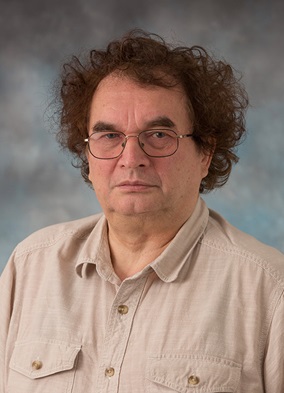
Nationwide Children's Hospital and The Ohio State University, United States
Dr. Andrzej Kloczkowski, Male, Computational Biologist, obtained M.Sc. in Chemistry from the University of Warsaw, Poland in 1974, and Ph.D. in Physical Chemistry from the Institute of Physical Chemistry of the Polish Academy of Sciences in Warsaw in 1980. Additionally, he received D.Sc. (Habilitation) degree from the Department of Chemistry, University of Warsaw in 2001. He obtained postdoctoral training at Stanford University, and worked in the past at the University of Cincinnati, National Cancer Institute, NIH in Bethesda, MD, and Iowa State University. Since 2010 he is Principal Investigator in the Battelle Center for Mathematical Medicine in the Research Institute of the Nationwide Children’s Hospital in Columbus, Ohio, and Tenured Professor of Pediatrics in the Department of Pediatrics of The Ohio State University. He published over 180 peer reviewed papers, and a co-edited a book Prediction of Protein Secondary Structure (Humana Press, New York, 2017). His research has been funded by the National Science Foundation and the National Institutes of Health. He has been invited to lecture at multiple institutions and conferences, and served as a Reviewer for numerous journals, and several funding agencies, including NSF, NIH, and Foundation for Polish Science. He is on the editorial board of several journals, and organized numerous scientific conferences and meetings.

Institute of Oncology Research (IOR), SWITZERLAND
Position: Bioinformatics researcher
Dr. Luciano Cascione studied Computer Science at the University of Catania (Italy) and was visiting scholar at Ohio State University (US) at Carlo Croce's Lab. He has joined the Institute of Oncology Research (IOR) in 2013 as post-doc in the Lymphoma Genomics group. From 2018 he runs the Bioinformatics Core Unit at IOR and he is group leader of Swiss Institute of Bioinformatics (SIB, https://www.sib.swiss/luciano-cascione-group).
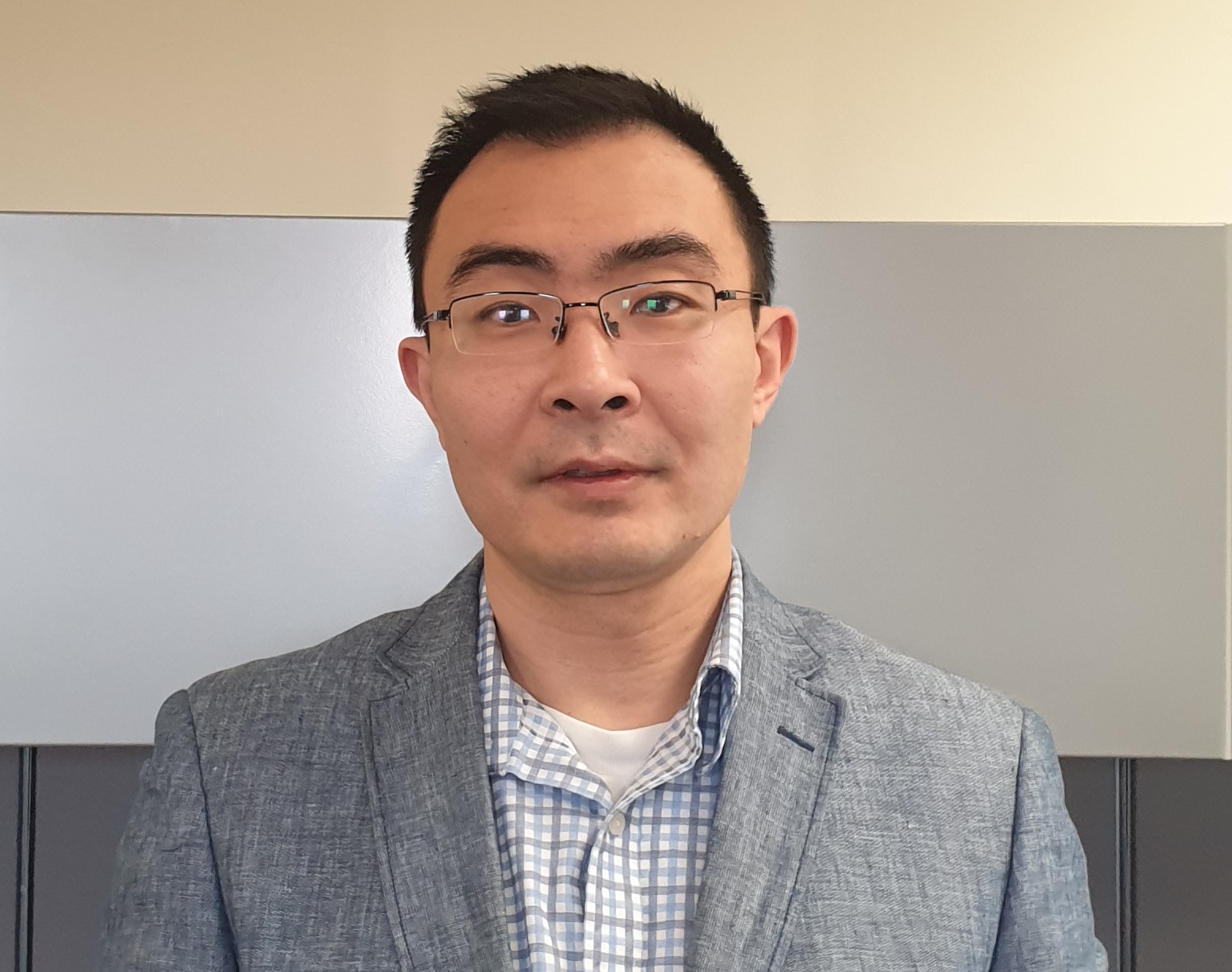
University of New Mexico Cancer Center. USA
Position: Professor and director of Bioinformatics Shared Resources for the New Mexico Comprehensive Cancer Center
Dr. Guo is an Associate and Endowed Professor at Department of Internal Medicine, Division of Molecular Medicine, University of New Mexico. He is also serving as the director of Bioinformatics Shared Resources for the New Mexico Comprehensive Cancer Center. Dr. Guo has substantial experience with NIH funded projects and has served as bioinformatician on many NIH funded grants including SPORE in breast and GI cancers. Dr. Guo’s research has been focused on the development of bioinformatics methodology and analysis for genomic studies and has published more than 120 manuscripts in the related fields. .
The Application of Machine Learning Algorithms to Diagnose CKD Stages and Identify Critical Metabolites Features
Background: Chronic kidney disease (CKD) is a progressive and heterogeneous disorder that affects kidney structures and functions. Now it becomes one of the major challenges of public health. Based on early stage detection, stage special treatments can significantly defer or prevent CKD progressions. Currently, clinical CKD stage diagnoses are mainly based on the level of glomerular filtration rate (GFR). However, There are many different equations and approaches to estimate GFR, which can cause inaccurate and contradictory issues.
Methods: In this study, we used supervised machine learning algorithms to construct high-performance CKD stage diagnosis models to diagnose CKDs stages without estimating GFR. Results: We analyzed a dataset with positive ion levels from mass spectrometry of blood samples. We also developed a feature selection algorithm to identify the most critical and correlated metabolite features that were related to the CKD developments. Then, we used the selected metabolite features to construct improved and simplified CKD stage diagnosis models, significantly reducing the cost and time when compared with previous models. Furthermore, we applied unsupervised learning algorithms to validate the results we obtained above. Finally, we studied the correlations among the selected metabolite features of CKD developments.
Conclusions: The selected metabolite features provided insights into CKD early stage diagnosis, pathophysiological mechanisms, CKD treatments and drug development.
Previous Editions IWBBIO
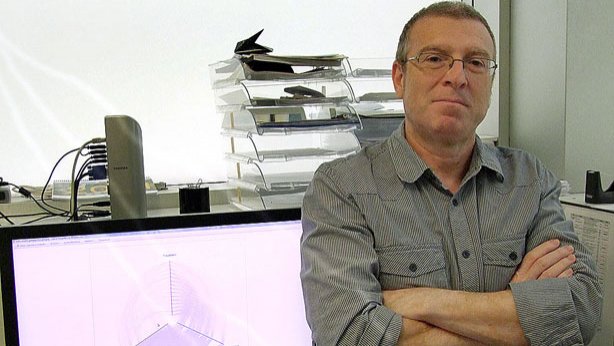
Fundacion Progreso y Salud, Clinical Bioinformatics Research Area, Sevilla, Spain
Joaquin Dopazo obtained his PhD in Biology at the University of Valencia in 1989. After several appointments in different research centers he worked for 5 years in Glaxo Wellcome (now Glaxo SmithKline) during the late nineties. There he was developing methods for bacterial genomic analysis and he participated in several bacterial and fungal genome projects. In 2000 he moved to the Spanish National Cancer Center (CNIO), where he set up the Bioinformatics group. In the CNIO he designed the first Spanish microarray (the Oncochip) in 2000 and he developed the most used resource for microarray data analysis on the web (GEPAS), now discontinued and included in the Babelomics, one of the most used resources for genomic data analysis and interpretation (cited more than 1500 times). The scope of the algorithms and software developed has evolved currently to the field of massive sequence data analysis. In 2005 Dr. Dopazo moved to the CIPF (Valencia) where he set up the Department of Computational Genomics (formerly Bioinformatics). There he promoted two genomic projects: the FutureClinic to prepare the scenario for the introduction of the genome in the electronic health record and the Medical Genome Project to sequence 1000 patients (800 sequenced to date) of inherited diseases to search for new biomarkers and disease genes. He was also involved in international projects such as the MAQC and SEQC (best practices in the use of microarrays and NGS, respectively, for finding diagnostic biomarkers) or the START consortium to characterize the variability of the rat genome. He has been also promoter of the CitrusGen project to sequence more than 500 citric genomes for genetic improvement purposes. Dr. Dopazo also coordinates the HPC4Genomics consortium, a joint initiative of the CIPF, several universities and companies that aim to combine genomic, bioinformatic and computing skills to address the new challenges posed by the technological advancement in genomics. Dr. Dopazo interests revolve around functional genomics, systems biology and development of algorithms and software for the analysis of high-throughput data (mainly, but not restricted to, Next Generation Sequencing) and its application to personalized medicine, agrogenomics and nutrigenomics
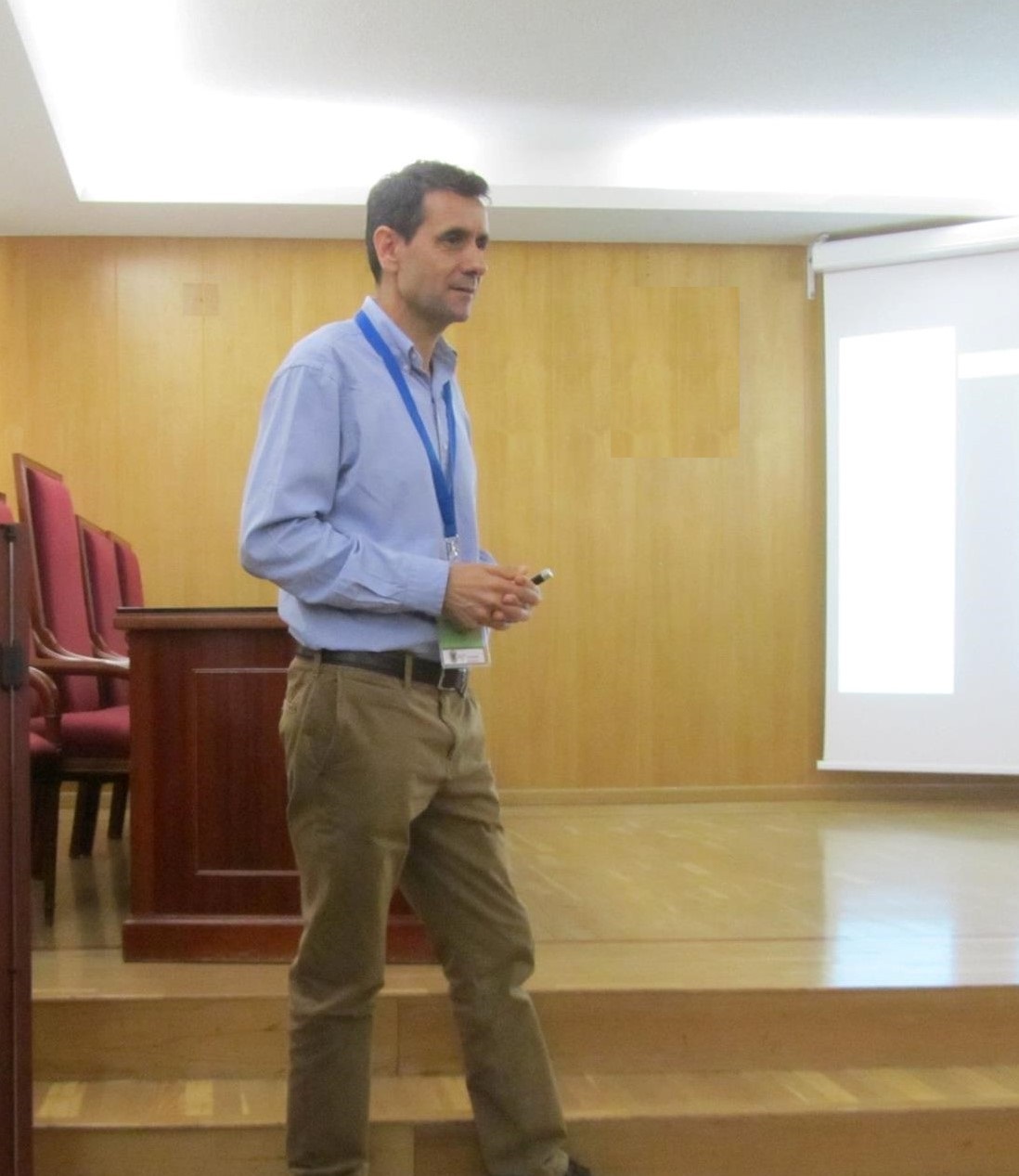
Professor, School of Computer Science, Pattern Recognition and Bioinformatics Lab, Windsor Cancer Research Group, University of Windsor
About the Speaker. Luis Rueda received his Bachelor’s degree in computer science from the National University of San Juan, Argentina, in 1993, and his Master’s and Ph.D. degrees in computer science from Carleton University in 1998 and 2002, respectively. He is currently a Full Professor within the School of Computer Science at the University of Windsor, Canada. His research interests are mainly focused on theoretical and applied machine learning and pattern recognition, mostly in the fields of transcriptomics, interactomics and genomics with applications to cancer research. He holds three patents on data encryption and has published more than 120 publications in prestigious journals and conferences in machine learning and bioinformatics. He is a Senior Member of the IEEE, and a Member of the Association for Computing Machinery and the International Society for Computational Biology.
Title: How Machine Learning Helps Find Relevant Transcriptomic Biomarkers in Prostate Cancer
Machine learning has been successfully used for data analysis in many different domains, including finance, cancer research, life sciences, and many others. While next generation sequencing has produced large datasets, which are difficult to analyze without the help of specialized learning algorithms, knowledge discovery may not be meaningful if not targeting the right biological or clinical questions. In contrast, life sciences need the support from those algorithms to identify meaningful biomarkers. While prostate cancer is a complex disease, its diagnosis can be missed due to the limited number of biopsies or the ineffectiveness of standard screening methods. Finding gene biomarkers for prostate cancer progression or location and analyzing their transcriptomics can help clinically understand the development of the disease and improve diagnosis, treatment and prognosis. In this talk, machine learning approaches for finding relevant transcripts and potential protein isoforms associated with prostate cancer progression, aggressiveness and location of the tumor will be discussed. In particular, our prediction models that identify novel transcripts involved in location of the prostate tumor and risk of progression will be presented.
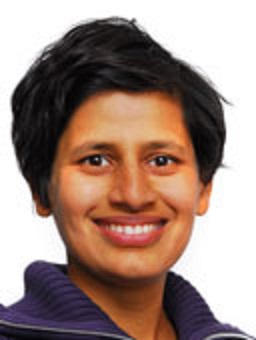
Bioinformatics Group Leader, Developmental Biology Division, The Roslin Institute, University of Edinburgh, UK
Title: Single cell transcriptomics in mammalian development and diseases
Summary: Single cell RNA sequencing is becoming increasingly popular due to rapidly evolving technology, decreasing costs and its wide applicability. It has been successfully used to explore the transcriptomes of cell populations and tissues to understand cellular differentiation processes, tissue heterogeneity in normal and disease states. However, the technology suffers from high drop-out rate and high technical noise, mainly due to the low starting material. This hinders the extraction of biological variability, or signal, from the data. In this presentation, I will firstly provide a literature overview of single cell transcriptomics and then focus on challenges using this technology and possible solution.
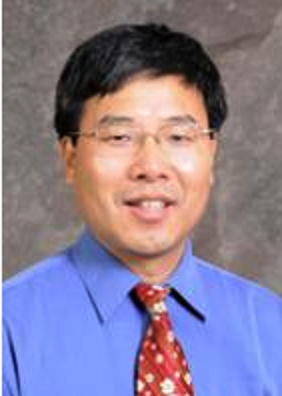
Prof. FangXiang Wu Ph.D., P.Eng, SMIEEE Professor, Division of Biomedical Engineering, Professor, Department of Mechanical Engineering, College of Engineering, University of Saskatchewan, 57 Campus Dr., Saskatoon, SK Canada, S7N5A9
Title: Predicting Disease Genes from Biomolecular Networks
It is well known that a complex disease stems from the malfunctions of some biomolecular networks which control the pathogenesis of the complex disease. Disease genes can be viewed as special nodes in biomolecular networks and are not randomly distributed (located) from existing evidences. The identification of disease genes is critical towards the understanding of complex diseases. We formulated identifying disease genes from a biomolecular network as finding the most possible configuration of the network. Borrowing from statistical mechanics, we employed the Boltzmann distribution to compute the probability of configurations of a network while adopting the Ising model to define the network energy. In this talk, I will present some of our recent results for identifying disease genes from biomolecular networks based on our proposed statistical mechanics-based methods.
About the Speaker.
Dr. FangXiang Wu received the B. Sc. degree and the M. Sc. degree in applied mathematics, both from Dalian University of Technology, Dalian, China, in 1990 and 1993, respectively, the first Ph.D. in control theory and its applications from Northwestern Polytechnical University, Xi’an, China, in 1998, and the second Ph.D. in bioinformatics and systems biology from University of Saskatchewan, Saskatoon, Canada, in 2004. He worked as a post-doctorial fellow with Laval University Medical Research Center, Quebec City, Quebec, during 2004-2005.
Dr. Wu is a full professor of Division of Biomedical Engineering, the Department of Computer Science, and the Department of Mechanical Engineering at the University of Saskatchewan, Canada. His current research interests include Machine learning in bioinformatics, Big biological data analytics, Biomolecular network analytics, Complex network controllability and observability, Brain images and brain networks, and Nonlinear biodynamic analytics. He has published more than 280 technical papers in refereed journals and conference proceedings.
Dr. Wu is serving as the editorial board member of four international journals (including Scientific Reports, Neurocomputing, etc.), the guest editor of more than 20 international journals, and as the program committee chair or member of many international conferences. He has also reviewed papers for many international journals. He is a senior member of IEEE and a registered Professional Engineer in Canada.
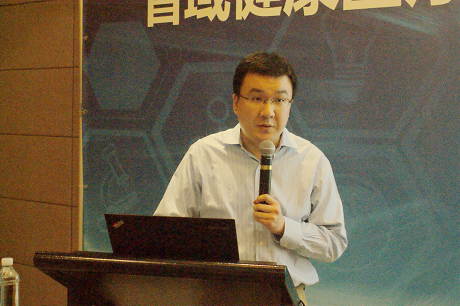
Professor, Department of Computer Science and Technology, Xi'an Jiaotong University (China)
Title: Detecting complex structural variations from the next generation sequencing data
About the Speaker.
Dr. Jiayin Wang did his undergraduate study at Xi'an Jiaotong University, China, where he received a Bachelor's degree in computer science and technology. After worked as a software engineer, he returned to school received his Ph.D. degree in computer science (bioinformatics) from University of Connecticut under Professor Yufeng Wu in 2013. He worked as a post-doctoral research associate at The Genome Institute at Washington University in St. Louis under Professor Li Ding during 2013 to 2015. Dr. Wang is currently a full professor with Department of Computer Science and Technology at Xi'an Jiaotong University. He is the founding co-director and now serving as the vice-director of the Shaanxi Engineering Research Center of Medical and Health Big Data. Dr. Wang's research interests are mainly focused on the NGS data analytics and data quality control problems in cancer genomics, and the computational approaches optimizing the data processing pipelines. Dr. Wang and his group has published about 40 research papers and earns more than 700 citations in recent five years.Plenary Talks. IWBBIO 2017
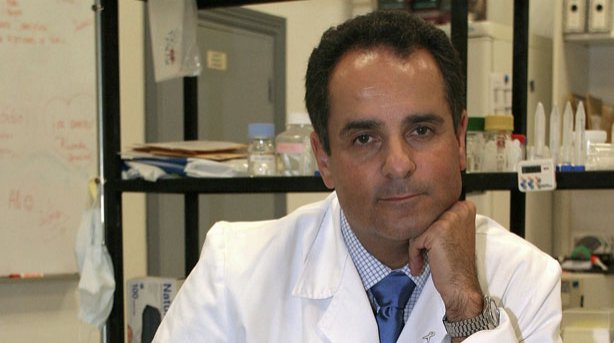
Director of Centre for Genomics and Oncological Research (GENYO). Professor of Legal and Forensic Medicine, University of Granada, Spain
Full Professor of Legal and Forensic Medicine, University of Granada, Spain. He is Director of GENYO and Director of the Genetic Identification Laboratory (University of Granada). He is VicePresident of the Official Medical Association of Granada (2008 - 2016), and Professor of Criminalistics, Andalusian Inter-university Institute of Criminology in Granada. He is Member of the National Commission of Legal and Forensic Medicine Specialty of Spain and was Deputy Director of the School of Labor Medicine of Granada and Professor of the International Training Unit of the FBI Academy. He was Director of the "Catedra - Taller M. BOTÍN" of Genetic Identification. He has been and is Director Scientist of several relevant projects (such as "FÉNIX" Genetic Identification of Missing Persons Program”; Genetic Identification of Detainees Disappeared in Chile, in collaboration with the Legal Medical Service and the Ministry of Justice of Chile; Andalusian Program of Maternal and Child Genetic Identification;"Genetic Identification of the remains of Christopher Columbus"; "DNA-PROKIDDS" Program for Genetic Identification of Missing Children and against Trafficking in Human Beings; etc). Director of the Strategy for Innovation and Health Research of the Junta Andalucia. He is author of a great number of scientific contributions in relevant indexed journal and international conferences. He has had a great activity as Advisor to Governments, Organizations, Universities and Institutions of Asia, Europe and Latin America. He is the Diretor of GENYO (Pfizer-University of Granada-Junta de Andalucía. Centre for Genomics and Oncological Research (GENYO)). This Centre “has been designed as a space of excellence for research on the genetic basis of diseases, including cancer, as well as on the influence of genetic inheritance in the body's response to certain drugs“. More information: http://www.genyo.es

Fundacion Progreso y Salud, Clinical Bioinformatics Research Area, Sevilla, Spain
Joaquin Dopazo obtained his PhD in Biology at the University of Valencia in 1989. After several appointments in different research centers he worked for 5 years in Glaxo Wellcome (now Glaxo SmithKline) during the late nineties. There he was developing methods for bacterial genomic analysis and he participated in several bacterial and fungal genome projects. In 2000 he moved to the Spanish National Cancer Center (CNIO), where he set up the Bioinformatics group. In the CNIO he designed the first Spanish microarray (the Oncochip) in 2000 and he developed the most used resource for microarray data analysis on the web (GEPAS), now discontinued and included in the Babelomics, one of the most used resources for genomic data analysis and interpretation (cited more than 1500 times). The scope of the algorithms and software developed has evolved currently to the field of massive sequence data analysis. In 2005 Dr. Dopazo moved to the CIPF (Valencia) where he set up the Department of Computational Genomics (formerly Bioinformatics). There he promoted two genomic projects: the FutureClinic to prepare the scenario for the introduction of the genome in the electronic health record and the Medical Genome Project to sequence 1000 patients (800 sequenced to date) of inherited diseases to search for new biomarkers and disease genes. He was also involved in international projects such as the MAQC and SEQC (best practices in the use of microarrays and NGS, respectively, for finding diagnostic biomarkers) or the START consortium to characterize the variability of the rat genome. He has been also promoter of the CitrusGen project to sequence more than 500 citric genomes for genetic improvement purposes. Dr. Dopazo also coordinates the HPC4Genomics consortium, a joint initiative of the CIPF, several universities and companies that aim to combine genomic, bioinformatic and computing skills to address the new challenges posed by the technological advancement in genomics. Dr. Dopazo interests revolve around functional genomics, systems biology and development of algorithms and software for the analysis of high-throughput data (mainly, but not restricted to, Next Generation Sequencing) and its application to personalized medicine, agrogenomics and nutrigenomics
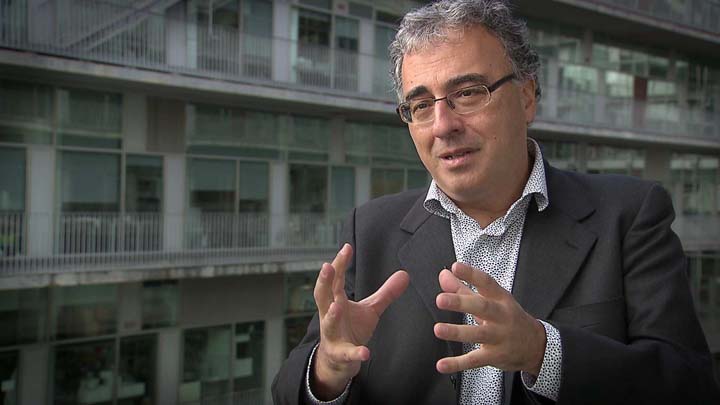
Coordinator of Bioinformatics and Genomics at Centre de Regulacio Genomica (CRG). Head of the Computational Biology of RNA Processing Group. Universitat Pompeu Fabra, Barcelona (SPAIN)
Roderic Guigo obtained his PhD in 1988 for work on Computational Methods on Evolutionary Ecology carried out with Dr. Jordi Ocaña at the Department of Statistics from the Universitat de Barcelona He then moved to the Dana Farber Cancer Institute, and later to Boston University, where he was a postdoctoral fellow with Dr. Temple F. Smith. With Dr. Smith, he became interested in Computational Genomics, which have been since then the main field of Dr. Guigo's research. On 1992 he moved to Los Alamos National Laboratory, where he was a postdoctoral fellow at the Theoretical Biology and Biophysics Group with Dr. James W. Fickett. In 1994 he returned to Barcelona where he joined the IMIM-Hospital del Mar Research Institute. Since year 2001 he is the coordinator of the Bioinformatics and Genomics Program of the Center for Genomic Regulation in Barcelona. He is also a Bioinformatics Professor at the Universitat Pompeu Fabra (UPF, Barcelona). Guigo's group main research topics are in the understanding of the sequence signals that guide the molecular pathway leading from DNA to RNA and protein sequences. His group also actively participates in the analysis of many eukaryotic genomes and it's involved in the NIH-funded ENCODE project. They are also members of two large cancer-studies consortia (chronic lymphocytic leukemia "CLL" and Breast Cancer -Hospital del Mar/CRG/Roche)
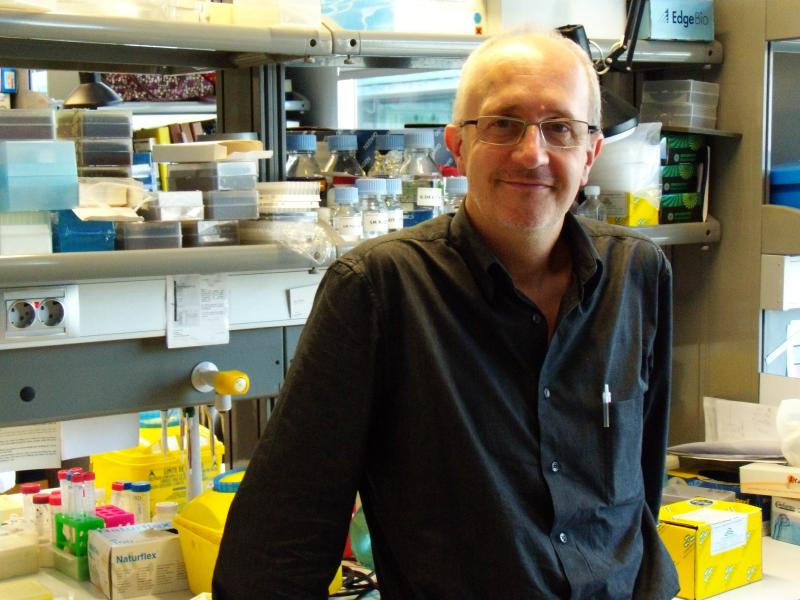
Genomics and Disease group Centre for Genomic Regulation (CRG), Barcelona (SPAIN)
Xavier Estivill obtained his BSc in Medicine and Surgery from the Autonomous University of Barcelona (1979). He was awarded the Haematology Specialist at Santa Creu i Sant Pau Hospital (1985). He was a research fellow and associated professor at the Biochemistry and Molecular Genetics department in the St. Mary's Hospital-Medical School (London). We obtained his PhD in Medicine from the Autonomous University of Barcelona (1987) and PhD in Genetics from the University of London (1995). He was awarded with the "Premio de Investigacion Reina Sofia" and "Premio Severo Ochoa de Investigacion Biomedica" (1995). He was also the director of the Genes and Disease programme (2002-2012), which comprised 5 research groups (Murine Models of Disease, Neurobehavioral Analysis, Genetic Causes of Disease, Gene therapy, and Gene Function). This programme was supported by the Spanish Ministry of Health (and the Catalan Government (Generalitat de Catalunya) and has contributed to the ENCODE project and to the structural genome variation project. Xavier Estivill is currently the group leader of the Genomics and Disease group in the Centre for Genomic Regulation (CRG) and Head of the Genomics and Personalized Medicine Unit, University Hospital Quiron Dexeus, Women's Health Department (Spain). His research group is focused on the evaluation of how different types of genetic variants (single nucleotide variants, structural variations, mainly copy number variants, and insertion/deletion variants, including transposable elements) contribute to common and rare human disorders. They are also exploring the contribution of epigenetic modifications and non-coding RNA pathways in complex diseases, mainly neuropsychiatric and neurodegenerative disorders. They approach these questions through very well characterized cohorts of patients and the use of high-throughput genomic platforms and functional studies including longitudinal studies of patients at different time-points and cohorts in which exposure to environment has been monitored.

Structural Computational Biology group Spanish National Cancer Research Center (CNIO), Madrid (SPAIN)
Alfonso Valencia is a biologist with formal training in population genetics and biophysics received from the Universidad Complutense de Madrid. He was awarded his PhD in 1988 at the Universidad Autónoma de Madrid. He was a Visiting Scientist at the American Red Cross Laboratory in 1987 and from 1989-1994 was a Postdoctoral Fellow at the laboratory of C. Sander at the European Molecular Biology Laboratory (EMBL), Heidelberg (Germany). In 1994 Alfonso Valencia set up the Protein Design Group at the Centro Nacional de Biotecnología, Consejo Superior de Investigaciones Científicas (CSIC) in Madrid where he was appointed as Research Professor in 2005. He is currently leader of the Structural Computational Biology Group at the Spanish National Cancer Research Centre (CNIO). This group is focused on the study of the molecular bases of cancer progression. They bring an evolutionary perspective to how global genome organisation influences tumour progression, i.e. how the interplay between genomics and epigenomics determines the cause and course of the progression of tumours. Additionally, he is a Member of the European Molecular Biology Organisation (EMBO), Founder and former Vice President of the International Society for Computational Biology . Alfonso Valencia serves on the Scientific Advisory Board of the European Molecular Biology Laboratory; the Swiss Institute for Bioinformatics, Biozentrum, Basel; the INTERPRO database; the Spanish Grant Evaluation Agency (ANEP); as well as the Steering Committee of the European Science Foundation Programme on Functional Genomics (2006-2011). Alfonso Valencia is Co-Executive Editor of Bionformatics, serves on the Editorial Board of EMBO Journal and EMBO Reports, among others. He is the Director of the Spanish National Bioinformatics Institute (INB).
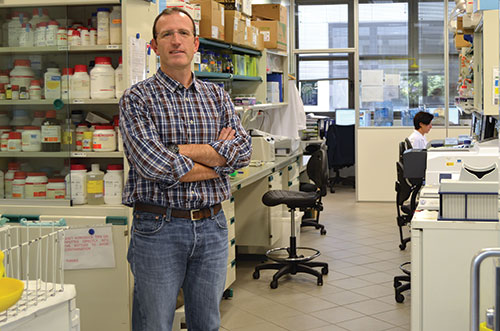
Structural Bioinformatics and Network Biology group Institute for Research in Biomedicine (IRB), Barcelona (SPAIN)
Born in Barcelona in 1972. He obtained his BSc in Biochemistry (1996), MSc in Biotechnology (1998) and PhD in Biochemistry & Molecular Biology (2000) from the Autonomous University of Barcelona. He then joined the Structural Bioinformatics Group at the European Molecular Biology Laboratory (EMBL, Heidelberg, Germany) in 2001 where he did his postdoctoral training and became Staff Scientist (2003). Since April 2006, Patrick Aloy is an ICREA Research Professor and Principal Investigator of the Structural Bioinformatics Lab in the Institute for Research in Biomedicine (IRB Barcelona). His main scientific interests are related with the field of structural bioinformatics, developing important technologies and algorithms to solve specific problems in several bioinformatic topics. His lab in Barcelona is currently focused on understanding the molecular bases of how macromolecular complexes and cell networks operate by analyzing protein-protein interaction networks with the help of high-resolution 3D structures. They are responsible, for example, of an important and highly used database of three-dimensional interacting domains (3did), which contains a collection of high-resolution three-dimensional templates for domain-domain interactions. Abstract: Network and systems biology offer a novel way of approaching therapeutics by developing models that consider the global physiological environment of protein targets, and the effects of modifying them, without losing the key molecular details. In this talk, I will discuss two recent projects developed in the lab that exploit global properties of complex systems. In particular, I will present a computational network biology strategy, based on the quantification of pathway crosstalk inhibition in therapeutic networks, to discover synergistic drug combinations for breast cancer treatment. In addition, I will show how taking a chemo-centric view of human health, which does not require detailed mechanistic information, we can build networks of human conditions able to predict disease comorbidities, as well as identifying potential drug side effects and opportunities for drug repositioning.